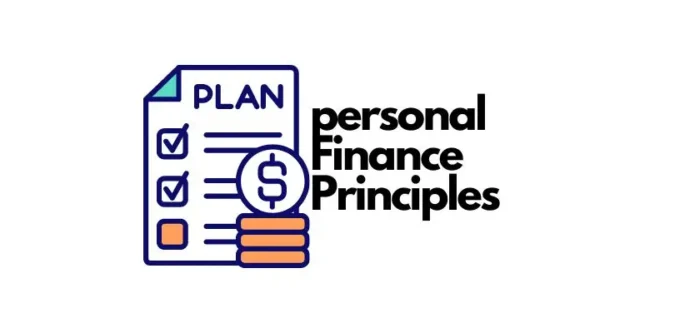Welcome to the world of personal finance, where understanding a few key principles can inspire you to take control of your money and build a secure future. Explore “What are the basic personal finance principles” – your ultimate guide to budgeting, saving, investing, and securing a prosperous future.

Simple, effective, and essential for your financial journey! Think of personal finance as a roadmap that guides you in making smart financial decisions.
From budgeting your income to planning for retirement, these principles are like friendly signs, helping you navigate the journey of managing your finances wisely. Let’s explore these basic principles, designed to make your financial path clearer and your goals more possible.
Master the Basics: Your Guide to Financial Freedom
Whether it’s creating a budget, saving for emergencies, or investing for the future, these principles are the foundation for a more financially confident and stable life. So, let’s embark on this journey together and uncover the simple yet powerful principles that can shape your financial success.
What are the Key Personal Finance Principles?
Budgeting:
Create a budget to track your income and expenses. This helps you understand where your money is going and allows you to make informed financial decisions. Understanding and implementing what are the basic personal finance principles is the key to financial well-being.
- Create a plan for your money.
- List your sources of income.
- Track where your money goes each month.
- Allocate specific amounts for essential expenses, savings, and discretionary spending.
Emergency Fund:
Save for unexpected expenses by establishing an emergency fund. Aim for 3-6 months’ worth of living expenses to cover unforeseen circumstances like medical emergencies or job loss.
- Save money for unexpected events.
- Aim for 3-6 months of living expenses.
- Use the fund for emergencies like medical bills or job loss.
- Helps you avoid going into debt during tough times.
Savings:
Develop a habit of saving money regularly. Whether it’s for short-term goals (like a vacation) or long-term goals (like buying a home or retirement), saving consistently is crucial.
- Regularly set aside money for future goals.
- Short-term goals (e.g., vacation) and long-term goals (e.g., buying a home).
- Develops financial discipline and provides a financial cushion.
Debt Management:
Avoid accumulating unnecessary debt, and if you have existing debt, focus on paying it off. Prioritize high-interest debts first to save money in the long run.
- Avoid unnecessary debt.
- Pay off high-interest debts first.
- Focus on reducing outstanding balances.
- Helps save money on interest payments.
Investing:
Understand the basics of investing to grow your wealth over time. Diversify your investments to spread risk, and consider a mix of stocks, bonds, and other assets based on your financial goals and risk tolerance.
- Grow your wealth over time.
- Diversify investments to spread risk.
- Consider stocks, bonds, and other assets based on goals and risk tolerance.
- Long-term strategy for building financial security.
Live Below Your Means:
Don’t spend more than you earn. Living below your means allows you to save, invest, and build wealth for the future.
- Spend less than you earn.
- Avoid unnecessary expenses.
- Provides room for saving and investing.
- Prevents financial stress and debt accumulation.
Insurance:
Protect yourself and your assets by having appropriate insurance coverage. This includes health insurance, life insurance, and coverage for property and valuables.
- Protect yourself and your belongings.
- Health insurance for medical expenses.
- Life insurance for your loved ones.
- Property insurance for home and valuables.
Financial Education:
Continuously educate yourself about personal finance. Stay informed about financial markets, investment options, and changes in tax laws to make informed decisions.
- Continuously learn about personal finance.
- Stay informed about investments, taxes, and financial markets.
- Helps make informed financial decisions.
Retirement Planning:
Start saving for retirement as early as possible. Take advantage of employer-sponsored retirement plans like 401(k) or individual retirement accounts (IRAs).
- Save for your retirement early.
- Use employer-sponsored plans like 401(k) or IRAs.
- Ensure a comfortable lifestyle after you stop working.
Review and Adjust:
Regularly review your financial situation and adjust your plan as needed. Life circumstances change, and your financial plan should adapt to reflect those changes.
- Regularly check your financial situation.
- Adjust your plan as life circumstances change.
- Adapt to new goals, income changes, or unexpected events.
Conclusion
In conclusion, of what are the basic personal finance principles, mastering the basics of personal finance empowers you to shape a secure and prosperous future. From budgeting to investing, these principles provide a roadmap for making informed decisions, ensuring financial well-being. Take control of your finances, embrace these principles, and embark on a journey towards lasting financial success.
Benefits of Following These Principles:
- Financial Security and Stability
- Achieve Financial Goals
- Reduced Financial Stress
- Peace of Mind for the Future
FAQs
What is the importance of creating a budget?
A budget helps you track income and expenses, providing a clear picture of your financial health and enabling smart money management.
Why do I need an emergency fund?
An emergency fund acts as a financial safety net, covering unexpected expenses like medical bills or job loss, preventing reliance on credit and debt.
How can I start investing with limited funds?
Begin with low-cost investment options like index funds or ETFs. Many investment platforms allow you to start with small amounts, enabling gradual growth.
What’s the importance of diversification in investing?
Diversification spreads risk by investing in various assets. This minimizes the impact of poor performance in one investment on your overall portfolio.
When should I review my financial plan?
Regularly review your financial plan whenever there are significant life changes, such as a new job, marriage, or unexpected expenses. Adjust your plan accordingly to align with your goals.

